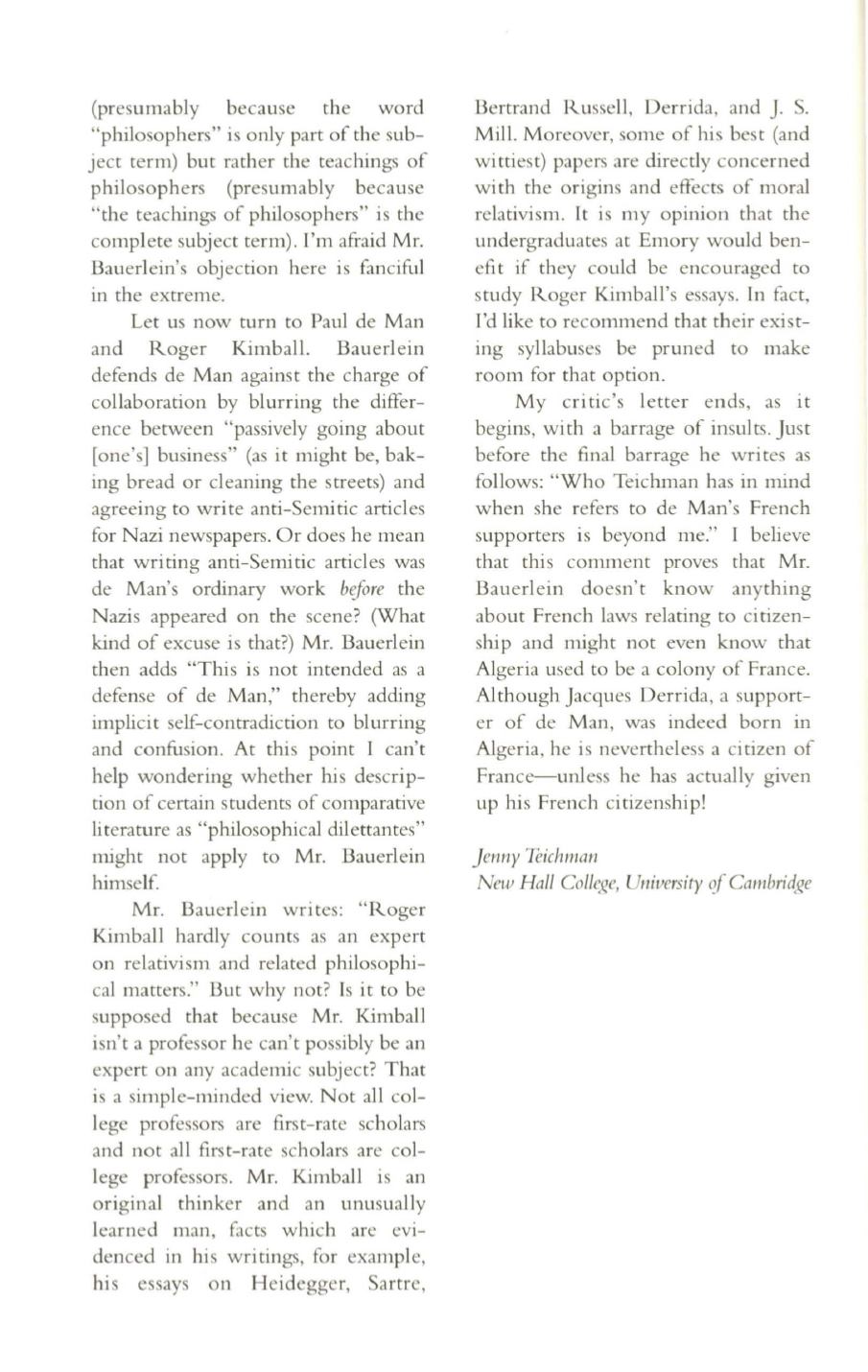
(presumably because the word
"philosophers" is only part of the sub–
ject term) but rather the teachings of
philosophers (presumably because
"the teachings of philosophers" is the
complete subject term). I'm afraid Mr.
Bauerlein's objection here is fanciful
in the extreme.
Let us now turn to Paul de Man
and Roger Kimball. Bauerlein
defends de Man against the charge of
collaboratio n by bl urring the differ–
ence between "passively going about
[one's] business" (as it might be, bak–
ing bread or cleaning the streets) and
agreeing to write anti-Semitic articles
for Nazi newspapers. Or does he mean
that wri ting anti-Semi tic articles was
de Man's ordinary work
bifore
the
Nazis appeared on the scene? (What
kind of excuse is that?) Mr. Bauerlein
then adds "This is not intended as a
defense of de Man," thereby adding
implicit self-contradiction to blurring
and confusion. At this point I can't
help wondering whether his descrip–
tion of certain students of comparative
Ii
terature as " philosophi cal dilettantes"
might not apply to Mr. Bauerlein
himself.
Mr. Bauerlein writes: "Roger
Kimball hardly counts as an expert
on relativism and related philosophi–
cal matters." But why not? Is it to be
supposed that because Mr. Kimball
isn't a professor he can't possibly be an
expert on any academic subject? That
is a simpl e-minded view. Not all col–
lege professors are first-rate scholars
and not all first-rate scholars are col–
lege professors. Mr. Kimball is an
original thinker and an unusually
learned man, facts which are evi–
denced in his writings, for example,
his essays on Heidegger, Sartre,
Bertrand Russell, Derrida, and
J.
S.
Mill. Moreover, some of his best (and
wi ttiest) papers are directly concerned
with the origins and effects of moral
relativism. It is my opinion that the
undergraduates at Emory would ben–
efit if they cou ld be encouraged to
study Roger Kimball's essays. In fact,
I'd like to recommend that their exist–
ing syllabuses be pruned
to
make
room for that option .
My critic's letter ends, as it
begins, with a barrage of insults. Just
before the final barrage he writes as
follows: "Who Teichman has in mind
when she refers to de Man's French
supporters is beyond me." I believe
that this comment proves that Mr.
Bauerlein doesn't know anything
about French laws relating
to
citizen–
ship and might not even know that
Algeria used to be a colony of France.
Al though Jacques Derrida, a support–
er of de Man, was indeed born in
Algeria, he is nevertheless a ci tizen of
France-unless he has actually given
up hi s French citizenshi p!
Jenny Teichll/all
New Hall College, Ulliversity
cif
Call/bridge


